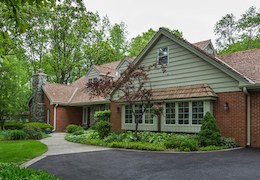
Home Inspector
What Sets Us Apart
We place high importance on accuracy and equipping every client that approaches us with valuable information. This drives the precision in everything we do so that we can help buyers make well-informed decisions.
Exceptional Service
We offer clients free, unlimited phone consultations for the entire duration that you own your home. Our team of full-time inspectors are equipped with the resources and tools to maximize efficiency and provide exceptional levels of service at all times.Same-Day Reporting
Your time is valuable to us, which is why all reports are generated the same day your inspection is completed. Click here to view a sample report.
Transparent Communication
All of our reports are generated with our clients in mind. We work to simplify all of our reports so that clients understand every aspect of the inspection process.
Value-Added Benefits
When you choose Precision Inspection, you receive a pre-approved and pre-screened contractor list that offers independent estimates for repairs. You can also request a free home maintenance book when you book your inspection. For vacant properties, we offer a FREE return inspection to check gas or air conditioning, if it was off or it was too cold during your initial inspection. Precision Inspection also carries E&O and general liability insurance so that clients are always protected.






